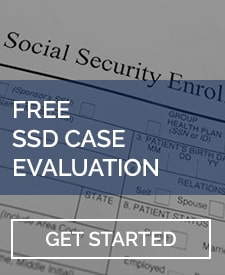Did you know 1 in 4 Americans suffer from mental disorders? That’s approximately 57.7 million people ages 18 and older. Even with these numbers, some people remain skeptical about mental illness. This is because mental illness is typically diagnosed based upon symptoms. Testing for these conditions is based upon subjective responses rather than on blood testing or imaging. Mental disorders affect every person differently. Some people who suffer from depression may experience mild symptoms while others may experience more severe or extreme symptoms. This article is meant to shed some light upon what exactly mental illness is and some uncommon facts. The hope is after reading this article you have a better understanding of the very real nature of mental disorders and how they may affect different people.
Mental Illness Is a Disease
First and foremost, mental illness is a disease. All mental disorders are brain diseases. This means the brain is not functioning properly. It is a medical condition which disrupts a person’s thinking, mood, ability to relate to others and daily functioning. Mental disorders often result in a diminished capacity for coping with ordinary demands of life.
The mental illness spectrum is vast. Did you know there are over 300 different mental health disorders? Some of the most common mental disorders include Mood disorders including depression, bipolar and suicide; Schizophrenia; Anxiety-related disorders including PTSD, OCD, and agoraphobia; Attention Deficit Hyperactivity Disorder; Autism and Personality Disorders.

One common myth is that Mental illness equates to low intelligence. This is simply not true. Just because an individual is suffering from some type of mental illness does not mean they are not intelligent. In fact, some of the most accomplished people have suffered from mental illness. The key is to seek treatment to help manage your condition.
Often times mental illness has a lifetime membership. Most mental disorders last forever. There are no “cures” for mental illness. No matter what treatment you receive, you will most likely always suffer from the diagnosed condition. There may not be an exact solution to mental illness but there are several types of treatment that may make it possible for individuals to live with their condition including medications and therapy.
One thing you should know is that a mental disorder is not a personal failing. Often time’s mental illness can be related to genetics. A person’s family history can give a pretty good road map of what the individual can expect regarding their mental health. Mental illness is no one’s fault and cannot be caught like the flu. Understanding your pre-disposal to mental disorders can help you prepare for what may come. Receiving mental health treatment is not shameful. You should never be ashamed to seek help regarding any emotional or mental problems you are experiencing. On the other side, if you know someone suffering from anxiety or depression, you should suggest they seek professional help. Receiving treatment for your condition can make a world of difference in your daily life.
Friends and family members can help those suffering from a mental disorder in simple everyday ways such as being there to listen and asking how they are doing. Approaching the situation head-on rather than creating an elephant in the room situation helps everyone. Try to treat the individual the same while also recognizing and supporting their mental health struggles. This oftentimes can be a balancing act. Individuals suffering from a mental condition don’t want to be defined by that illness but they also will need extra support from those around them. The worst thing you can do is avoid the issue or brush the person off because you find it awkward to talk about the mental illness. Talking helps to put different perspectives on the issue and sometimes helps to make them not seem so scary.
You should not be scared of people suffering from mental illness. Individuals suffering from mental conditions are typically not violent. Aggressive behavior occurs in only the most severe cases. It is important to remember that individuals suffering from a mental illness are not necessarily more prone to violence than others. In fact, people suffering from mental illness are more likely to be a victim of a violent crime rather than being the aggressor.
Applying for Disability

Social Security looks at whether the individual meets a mental health listing or whether their functional capacity prevents them from completing work-related activities. If you are suffering from a mental condition and not able to work you should seek the help of an attorney to help you apply for benefits.
The process for applying for disability benefits and obtaining them is long and cumbersome. Depending on the individual’s mental disorder, they may become easily overwhelmed with the steps required and often times give up on obtaining benefits. Eliciting the help of a disability attorney will ensure your claim is properly prepared and also allows the individual to focus on their mental health.





